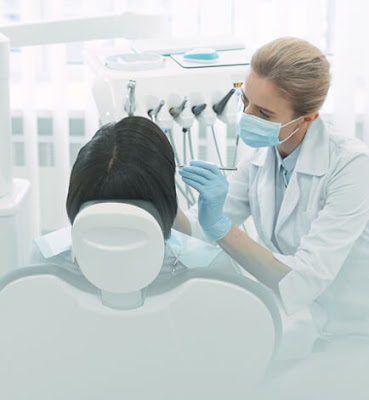What Are the Benefits of Wearing a Night Guard as Teeth Grinding Treatment?
Has it ever happened to you? You find that your jaw hurts, or aches and you don't know why. With or without knowing it, many people clench their teeth from time to time, and it as a rule isn't an issue. But when it arrives at where your jaw hurts, you might be clenching significantly more than you understand; and that can mean something bad for your mouth.
What is Bruxism?
Although not thought about a dangerous condition, bruxism can still cause numerous issues. Bruxers may wind up with seriously harmed teeth or experience pains and headaches. In many cases, over the top gripping and crushing may make the jaw move twisted or even wear out the teeth to their stumps.
Clenching or teeth crushing is called bruxism. It can happen when you are stressed or restless. If you find yourself doing it, you can attempt to stop, and address the upsetting trigger. Yet, it can likewise happen while you're sleeping. If you wake up with a sensitive jaw, or a consistent, dull headache, and there is no conspicuous explanation, then this might be a piece of information. Teeth grinding treatment may include wearing a mouth guard or brace during rest to prevent the upper and lower sets of teeth from reaching.
Common warning signs and symptoms of chronic teeth grinding include:
• Worn down, leveled or chipped teeth
• Frequent ear infections, facial pain or jaw pain
• Unexplained cerebral pains, especially in the first part of the day
• Increased tooth sensitivity
• Indentions on tongue
• Worn tooth enamel, uncovering profound layers of the tooth
• Chewed tissue on within cheek
• Enlarged or fixed jaw muscles because of extreme contractions
• Grinding or clenching that is sufficiently uproarious to stir others in your family unit
There isn't one reason for bruxism, however commonly teeth grinding are connected with reasons, for example, stress or a characteristic reaction because of the misalignment of teeth. In kids, ordinarily bruxism is an aftereffect of the development and growth of the jaws and teeth.
Most Common Bruxism Treatments
Your dentist will likely suggest a custom-fitted dental night monitor, a hard, plastic machine that fits over the upper teeth.
It for the most part has a level, smooth surface in the back so that there are no "play areas" to grind on – all of your teeth should hit it uniformly.
Less oftentimes, the dentist may recommend a sort of mouth monitor that just permits the front teeth to meet up, with back teeth staying independent – or, in extreme cases, double tools for both upper and lower teeth.
Your dentist will establish impressions of your teeth; however, the dental night monitor itself is generally made in a lab. It should fit serenely and will last 2-4 years.
The appliance will shield you from wearing out teeth. The dentist may likewise recommend applying a cold or warmth pack to the jaw. What's more, last, yet significant, you ought to get familiar with below lifestyle habits:
• Eat a nutritious, low-calorie diet
• Engage in normal games and high-impact work out
• Maintain low utilization of liquor
• Don't smoke
• Avoid recreational drugs
• Have cherishing companions and provide for others all the time
• Get a lot of good sleep
These habits and snoring dental treatment can assist you with stay relaxed, which may improve your teeth clenching – and furthermore assist you with living a long, healthy life.




Comments
Post a Comment